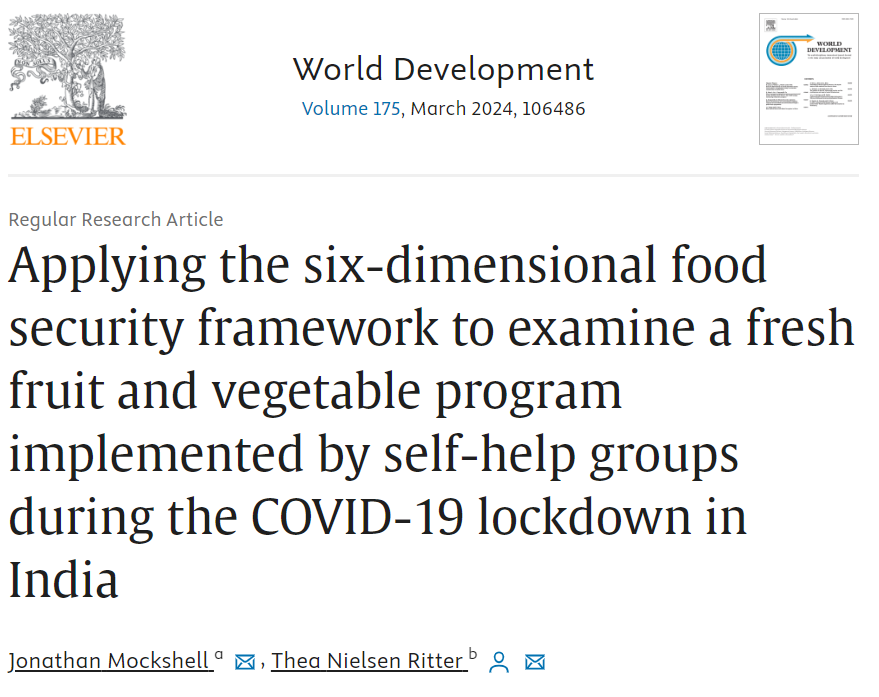Applying the six-dimensional food security framework to examine a fresh fruit and vegetable program implemented by self-help groups during the COVID-19 lockdown in India

To alleviate impacts of novel coronavirus lockdowns on food security and agri-food value chains, governments implemented various policy responses, yet there is limited evidence as to their effectiveness to build resilience in food systems and improve food security. One of these programs was implemented by self-help groups (SHGs) in Odisha, India, linking fresh fruit and vegetable (FFV) producers to consumers. This study integrates the concept of resilience into the six-dimensional food security framework (food availability, access, utilization, and stability, agency, and sustainability) and applies the framework to examine whether a FFV procurement program affected all six dimensions of food security and helped build resilience in food systems. Based on qualitative data from semi-structured interviews and focus group discussions, the results show that by enabling SHGs to fulfil the role of value chain actors prohibited from operating during the lockdown, the program had positive effects on availability, accessibility, utilization, and stability, with mixed effects on agency and sustainability. Applying the six-dimensional food security framework allowed us to show that despite some trade-offs both across and within the dimensions for various actors, overall the program was able to build more resilient food systems. Activating pre-existing organizations to re-establish fractured value chains can provide a model to replicate in times of crisis, such as pandemics and extreme climate events, when both rural and urban value chain actors can operate only at limited capacity and the public sector is overwhelmed. To accelerate the transformation of food systems towards healthier diets and greater resilience to shocks and crises, we recommend strengthening existing and establishing new organizations to help respond to crises and future shocks. A multifaceted approach will help ensure that the most vulnerable will not be left behind.